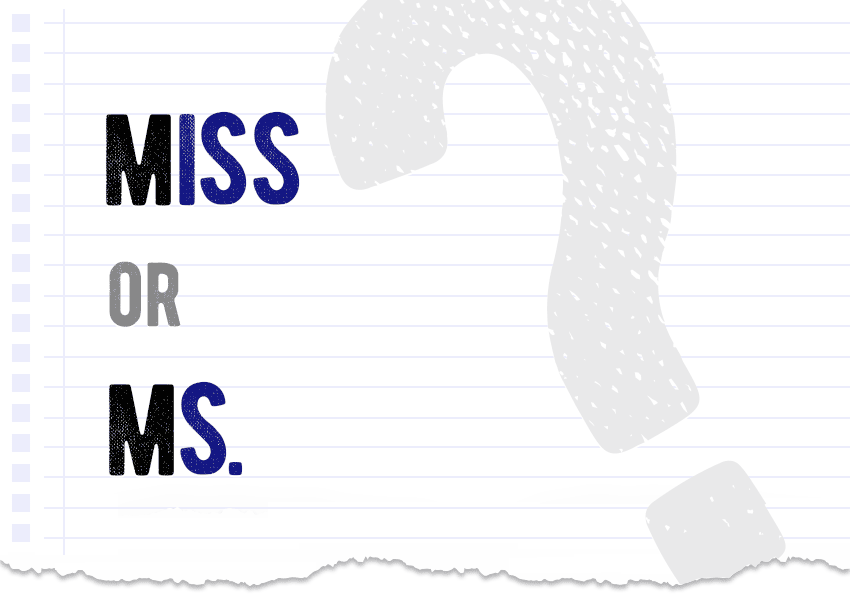Miss or Ms. – which of these two forms is correct?
I have no doubt that you have already seen both of these forms. I am even sure that you know that each term addresses to women. The good news is that there is no incorrect form, both Miss and Ms. are perfectly correct. The bad news is you should better not use Miss and Ms. interchangeably, at least as long as you do not want to offend anyone.

Miss or Ms.? What is the difference?
The form Miss is an abbreviation of the old-fashioned word mistress, which means an unmarried woman. When it comes to the word Ms. it should be used when the martial status of a woman is unknown. So, if you do not want to offend anyone you should use more secure form which is Ms. It is worth adding that usually the form Miss refers to younger women, while adult women prefer to be called Ms.
The history of the form Ms.
The form Ms. is quite new. It was used for the first time in the second half of the twentieth century by the feminist movement. The form Ms. was meant to be the answer to the form mr which does not reveal if a man is married or not.
What is the plural form of Miss and Ms.?
When it comes to the word Miss, there is only one way to make the plural form of this word and this is Misses. When we want to create a plural form from the word Ms. there are more possibilities as Mss., Mses., and Mmes. All of them are equally correct, but remember it always look better if you keep using one form consequently.
Miss or Ms.? It’s all clear! Examples from press and literature
“Rhapsody” made Ms. Bartlett a star, though it was not universally loved.
New York Times, 4 August 2022
“TV had changed by then”, Ms. Jorden said in a phone interview.
New York Times, 2 August 2022
“If they can find you”, replied Miss Avocet.
Ransom Riggs, Miss Peregrine’s Home for Peculiar Children
Now, Miss Brooks. Will you please tell me where you were born?
Kirby Larson, Hattie Big Sky


